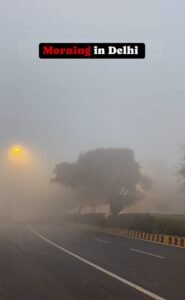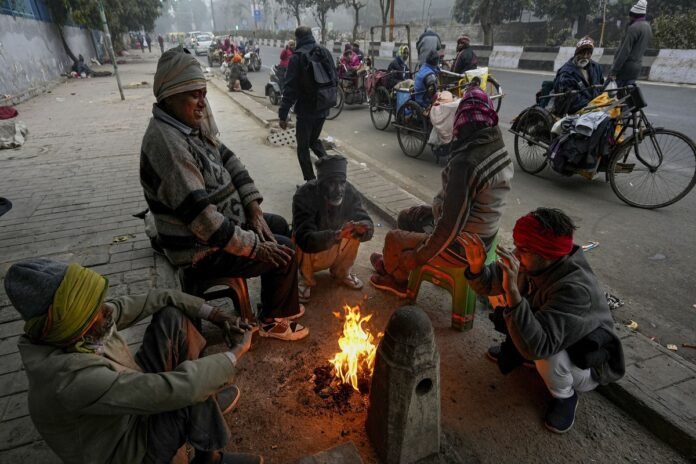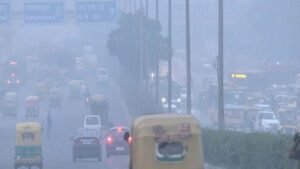Delhi will be very cold on 3 January, with a minimum temperature of 7 degrees Celsius. On January 2nd, Delhi had a minimum temperature of 8. 3°C, which is slightly higher than usual. Today, the weather will be mostly clear with some light fog.
2 min read 2024-01-06, 06:50 PM IST
Summary of the content
Delhi is currently in the throes of a severe cold wave, with temperatures plunging to 8.3 degrees Celsius, a notch above the normal for January 2. The India Meteorological Department (IMD) has issued forecasts indicating that the cold weather is set to persist, with dense to very dense fog expected in isolated areas. This article delves into the current weather conditions, the impact on daily life, and the measures being taken to address the challenges posed by the chilling temperatures.
ALSO READ| Weather Update Windy Season.
Current Weather Conditions
- Delhi recorded a minimum temperature of 8.3 degrees Celsius, marking a continuation of the cold spell.
- On Monday, the capital recorded a minimum temperature of 6 degrees Celsius, according to IMD reports.
- The forecast for Wednesday includes mainly clear skies with shallow fog in the morning.
Extended Weather Forecast
- The Regional Weather Forecasting Centre (RWFC) for Delhi predicts dense to very dense fog at isolated places, with cold day to severe cold day conditions expected in Haryana, Chandigarh, and Delhi until January 7.
- IMD anticipates an enduring cold spell, with the minimum temperature touching 7 degrees Celsius on January 3.
- The highest temperature is not expected to rise above 20 degrees Celsius until January 8.
Impact on Transportation
- Dense fog on Tuesday led to delays in at least 26 trains in the national capital.
- The IMD categorizes fog visibility into ‘very dense,’ ‘dense,’ ‘moderate,’ and ‘shallow.’ ‘Very dense’ fog occurs when visibility is between 0 and 50 meters.
Air Quality Concerns
- The 24-hour average Air Quality Index (AQI) recorded at 7 am on Wednesday is 332, categorizing it as “very poor.”
- Specific areas such as Anand Vihar, Ashok Vihar, Dwarka Sector 8, Jahangirpuri, Rohini, and Wazirpur recorded AQI levels between 310 and 386.
School Closures
- In response to the severe cold weather, all schools in Noida and Greater Noida will remain closed for students up to Class 8 until January 6.
- Private schools that were still conducting classes have been directed to close, while government schools are observing a winter break until January 14.
- Similarly, schools for students from Class 1 to Class 8 in Lucknow district, Uttar Pradesh, will remain closed until January 6.
Air Quality Index and Health Concerns
- The AQI, a measure of air pollution, is a cause for concern as it falls in the “very poor” category.
- The deteriorating air quality can pose health risks, especially for vulnerable populations.
- An AQI between 0 and 50 is considered “good,” while 401 and 500 are categorized as “severe.”
As Delhi grapples with an intense cold wave, the combination of low temperatures, dense fog, and deteriorating air quality poses challenges for residents and authorities alike. The extended weather forecast indicates a continuation of these conditions, prompting measures such as school closures to ensure the well-being of the community. Efforts to address transportation disruptions and health concerns are crucial, emphasizing the need for proactive measures to navigate through this winter weather spell.




